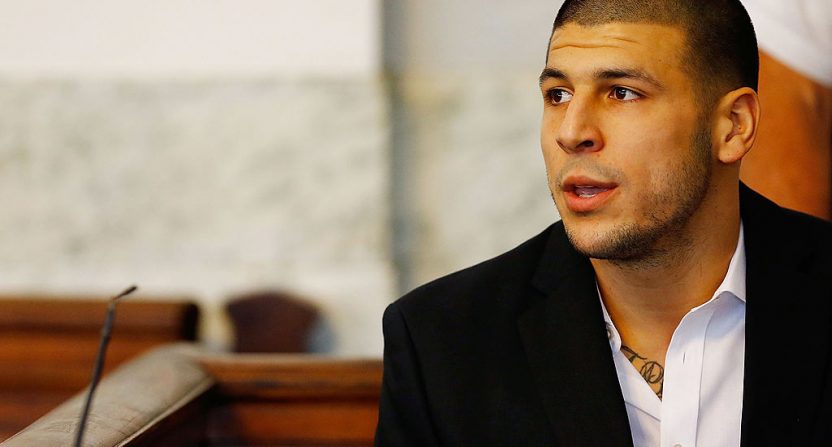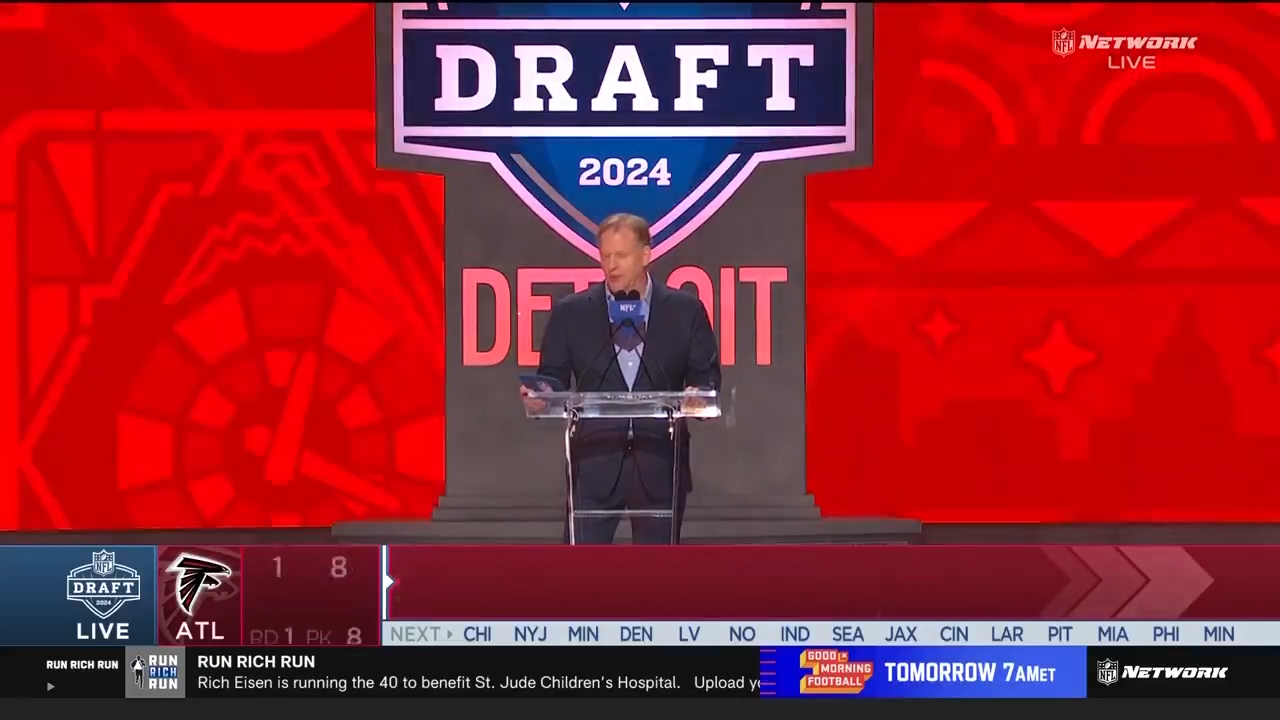According to an announcement from an attorney who represented Aaron Hernandez, researchers who examined Hernandez’s brain found a severe case of CTE, the degenerative brain disease linked to concussions and repetitive head trauma.
That announcement was today, and broken down by The New York Times here:
Aaron Hernandez, the former New England Patriots tight end who committed suicide in April while serving a life sentence for murder, was found to have one of the most severe forms of C.T.E., the degenerative brain disease linked to repeated head trauma that has been found in more than 100 former N.F.L. players.
A lawyer for Hernandez, Jose Baez, in announcing the result at a news conference Thursday, said researchers determined it was “the most severe case they had ever seen in someone of Aaron’s age,” which was 27.
Hernandez is the latest former N.F.L. player to have committed suicide and then been found with C.T.E., or chronic traumatic encephalopathy, joining Dave Duerson, Junior Seau, Andre Waters, Ray Easterling and Jovan Belcher, among others. Seau and Duerson deliberately shot themselves in the chest so that researchers would be able to examine their brains. Hernandez was found hanging in his prison cell.
Those researchers were from the Boston University CTE Center, the leading authority on the illness:
BREAKING: Aaron Hernandez had Stage 3 or 4 chronic traumatic encephalopathy (CTE), per Boston University CTE Center.
— A.J. Perez (@byajperez) September 21, 2017
Further information was released from the examination:
https://twitter.com/lindseyadler/status/910959563507150848
Aaron Hernandez's attorney announces that his estate is suing NFL and the Patriots after Hernandez's brain was found to have stage 3 CTE.
— Kevin Armstrong (@KevinGArmstrong) September 21, 2017
The apparently advanced nature of Hernandez’s disease should serve as an eye-opening example of just what can happen to players at a very young age. Obviously it’s a stretch to assign blame for all of Hernandez’s actions and decisions to the disease, but it’s just as much of a stretch to pretend that he was of a functioning mind and body. And the lawsuit his family plans to file could also have massive ramifications for the future of the sport; if found liable at all, that’s a Pandora’s Box of potential damages, especially going forward.








Comments are closed.